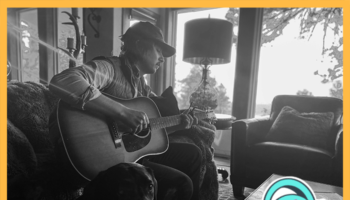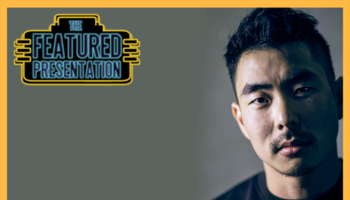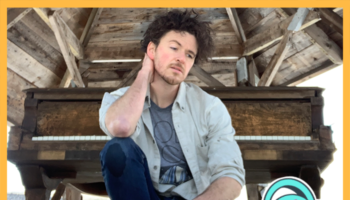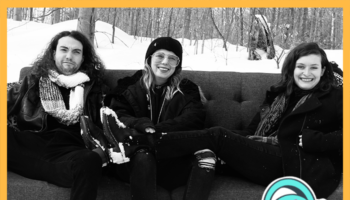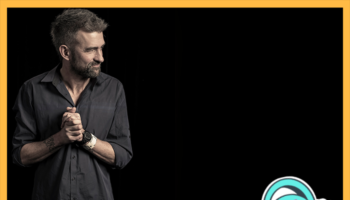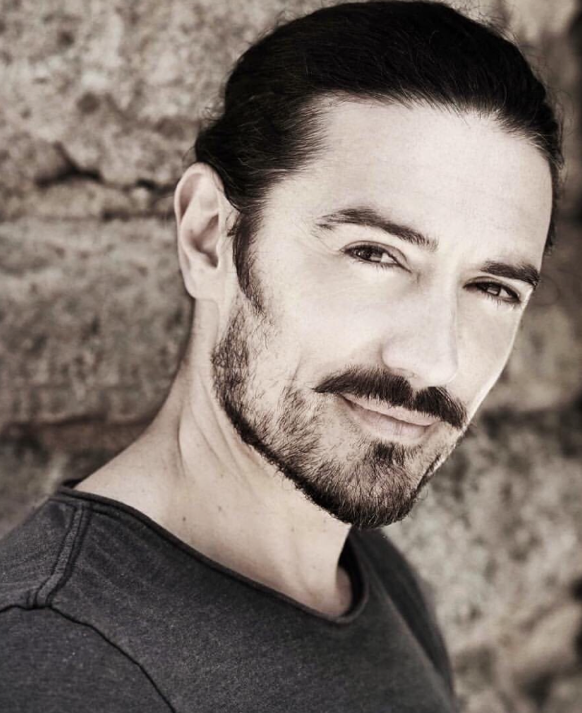
There is a lot of drama swirling about in the historically-inspired “Reign” and Adam Croasdell has been in the thick of it since joining the show as Bothwell in its fourth and final season. Prior to becoming a suitor to Mary, Queen of Scots, the Zimbabwe native appeared in fan-favorite series like “NCIS,” “Once Upon a Time,” and “Supernatural.” Studying and performing throughout the world enabled Croasdell to embrace all cultures and points of view, an exercise in acceptance that he has applied to his acting, particularly in the process of discovering new characters.
We recently sat down with Croasdell to discuss how there is no such thing as a bad guy, managing the time crunch of television, and how he was instantaneously accepted into the “Supernatural” fandom after appearing as Norse god Baldur.
TrunkSpace: From what we read, you’ve lived all over the world. From an acting perspective, has that exposure to different people and cultures enabled you to better find who characters are?
Croasdell: Yeah. I’ve lived all over the world. I was born and raised in Africa to English parents and then lived in various countries across there and then in the UK before coming across to the United States. I think it’s a good question because what I often say to people is that if one has the ability or means to travel than it should be mandatory for the very reason that it really gives you an insight into what makes other people tick. It makes you much more tolerant of differences and much more celebratory of different ideas. I think when a person unfortunately is lost very much into their own culture, whatever that is, it can lead to problems because they believe that their way is the right way or the only way of doing things. I think it’s kind of a myopic view. So I feel very lucky to have been able to travel so much and to have lived in so many places. I think it certainly has informed the way that I approach a role and a character.
I said at a convention recently during a question and answer session that I play a lot of quirky characters… eccentric characters. A lot of “bad guys.” And to me that’s an unsatisfactory idea… the idea of a bad guy. Because to me a bad guy is somebody who has followed a perfectly natural chain of thought processes to arrive at the action that he’s doing, which appear bad, but actually it’s completely normal and attributable to his worldview and life experience. So I try very hard not to judge any character that I’m playing because it’s perfectly natural and normal for them to be doing the thing that they’re doing and I find that fascinating. I think I probably wouldn’t have arrived at that had I not done so much traveling and lived in so many places.
TrunkSpace: Because at the end of the day, the “bad guy” himself doesn’t view his actions as bad.
Croasdell: Quite right. It’s completely normal what they’re doing. It’s completely rational and I find that fascinating. The stereotypical views that we have of other people and even people in our own lives… it’s just a shorthand and lazy thinking. I find it quite fascinating to be able to delve into the mindset beyond that.
TrunkSpace: So in terms of those various places that you have lived, did you also train in those different locations and did the education itself differ from place to place?
Croasdell: Yes. I trained in South Africa and it was a very interesting time. The ANC had just come into power after years of apartheid. It was a very fascinating time in history. I was very proud to had been there for that. I hail from Zimbabwe so the whole time I was growing up, I had a racially-integrated school system and social structure. South Africa at that time was a little bit more closed off to that type of thinking, but by the time that I had arrived, Nelson Mandela had just come to power and was the new president. It was a very exciting time. So it was interesting watching all that in flux around me and the new order coming in. It was a privilege to watch it happen. And certainly training in South Africa you are given a very broad training but also specifically in the classics with English playwrights and American playwrights. Of course, we had the African playwrights as well, which we studied, and modes of African performance, which are quite different and really fascinating. I was very happy to have received from both the western world and from Africa as well and everything Africa has to give. It’s a culture filled with great storytellers and musicians and poets. It’s incredibly rich and diverse, so I think I received a very good training indeed. I was very lucky.
TrunkSpace: You’ve been working steadily in film and television since the late 90s. How have you seen the way the industry approaches storytelling change over the years?
Croasdell: When I think about the late 80s and early 90s, it was a sort of a lighter age of performance, especially on TV. The characters were very likable, but they had A thing and they did THAT thing that they did and we loved watching the show for that. Now we have this Golden Age of television, which is truly incredible. The quality that is coming out of TV these days is astonishing and it has become an entirely different beast. The characters have much more depth. The heroes are anti-heroes. The female-driven stories are incredible… stories for women by women. It is an amazing smorgasbord of phenomenal writing and phenomenal characters right now. It’s a great time to be an actor.
I was saying this the other day, that there is a fair amount of 80s nostalgia that has come about because of it, I think. In the 80s and early 90s there was a sort of innocence about television, and maybe even films, where things were pretty straightforward and the hero was pretty straightforward and the bad guy was pretty straightforward. We had a lot of fun watching what the hero did to the bad guy and what the bad guy did to the hero. That was the mode. Now it’s hyper-realistic and much grittier. There’s a lot more sex and ultra-violence, often that speaks of the realities of this planet. But it’s interesting that it has lead to a sort of 80s nostalgia and you can see it in “Guardians of the Galaxy” and where they’re rebooting all of these 80s TV shows all of the time. And they often fail, generally, because people have moved on. You sometimes get it in the movies where they hit massively like “Guardians of the Galaxy,” but in TV, I think it has moved on. I’m watching “Breaking Bad” at the moment, binge watching it, and really, what Bryan Cranston manages to do with his character is astonishing. I remember watching him on “Malcolm in the Middle” and sort of going, “Okay, cool…” and now you watch him in “Breaking Bad” and the depth of characterization that you can go to in today’s TV world… it would be a dream to get a reoccurring on something like that. The writing is so good these days. It’s an utter gift and to be able to go into the headspace of the characters in a way that you never have the time to do in a film and just develop it and develop it out… Bryan Cranston does it magnificently and deserves all of the accolades for it. It seems to be an example of the way TV has gone and binge watching on Netflix is just so new too and we want to see it ALL immediately. You can get a really good feel for the same character and their arc.
TrunkSpace: So does it feel like things have flipped a bit and working in TV has sort of become the new version of film… especially from a production aspect as the medium continues to grow?
Croasdell: Yeah, I think there’s a lot to that. Although, in my experience with TV acting, you still are so on the clock. They want you to bang out the performance quickly. I did a movie back in South Africa a couple of years ago called “Hatchet Hour” and we had the amazing luck to be able to rehearse for 10 days ahead of shooting. That’s sort of almost unheard of even in movies these days, but you certainly don’t get that in TV. You get nowhere near that. You might have a rehearsal or two rehearsals and then you’re up and running and you’ve got to bang out the scene. Although it’s nice to think of it being more like movies, in terms of the process for the actor, it’s not necessarily because time is money and you’ve got to get on it.
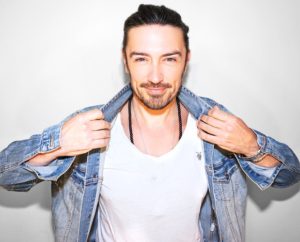 But that’s an interesting challenge for the actor because you have to come to work, as I hope one always would, very prepared. You have to be ready to deliver the goods almost instantaneously. And if you get a second take or a third take or a fourth take, if you’re lucky, you have a few ideas in mind to try things. You have to almost train like an athlete to do that type of acting.
But that’s an interesting challenge for the actor because you have to come to work, as I hope one always would, very prepared. You have to be ready to deliver the goods almost instantaneously. And if you get a second take or a third take or a fourth take, if you’re lucky, you have a few ideas in mind to try things. You have to almost train like an athlete to do that type of acting.
TrunkSpace: So when you’re in that mindset and working within that focus, does it change things up when you’re working on a series and a new director is suddenly involved in the process and by doing so, alters the tone and dynamic?
Croasdell: Absolutely. It’s always very interesting when you do ongoing drama and the director changes. Obviously it should be a wonderful dance where they come in with their ideas, which are often brilliant, and then mix with your ideas. What I realized for myself is that, a lot of the directors, some of who may be great fans of the show and know exactly what’s going on, often they’re directors-for-hire, so they’re out and about in the world doing other projects as well. What I finally realized was that nobody knows the character or your character’s arc better than you and the writers, so often times you have to approach the director and go, “That’s a great idea, but my character wouldn’t really do that.” And you can tell them the reasons why because no one is thinking about it more than you. It’s always about being open to them and their vision, but you help each other.
TrunkSpace: So as you look over your body of work, what project had the greatest impact on your career?
Croasdell: Well, the one that immediately comes to mind… and it’s probably not for the reasons that you’re thinking of… I was on a soap in England called “EastEnders,” which is a very well known soap over there. It’s watched by the majority of the country. I had the good fortune of landing the role of the doctor on the show and that was for a year ahead of me coming to the US. I always wanted to come out to the States and getting that job, which was a high profile job in the UK, provided me with the money and some of the profile needed to create a case for my green card to get me to the United States. I always wanted to come to the United States because over the course of living in the UK for many years, I was flown out to the States about four or five times to test for various pilots and I came down to the wire for some, probably the biggest one of which was “Prison Break.” After that, I thought that I had to be present in the United States, and so I went about wanting to get here and did all of my application stuff. But really it was “EastEnders” that allowed me to come here.
TrunkSpace: You appeared on “Supernatural” many years ago. It was one episode, but an episode that many in the fandom love and in a time period where viewers consider the show at its peak as far as storytelling goes. Has that fandom stuck with you?
Croasdell: Yeah. It really has. And that’s the thing that’s been surprising and delightful about the American TV shows. I have found fanbases on “Reign,” “Once Upon a Time,” and also “Supernatural” to be just phenomenal. Phenomenal fanbases filled with really phenomenal people. You get welcomed instantaneously as part of the gang, certainly on “Supernatural.” I was playing the Norse god Baldur and I had some great scenes with the Winchester lads. It was my first job after having arrived in the States. Literally, I arrived in the States and 10 days later I was in Canada shooting.
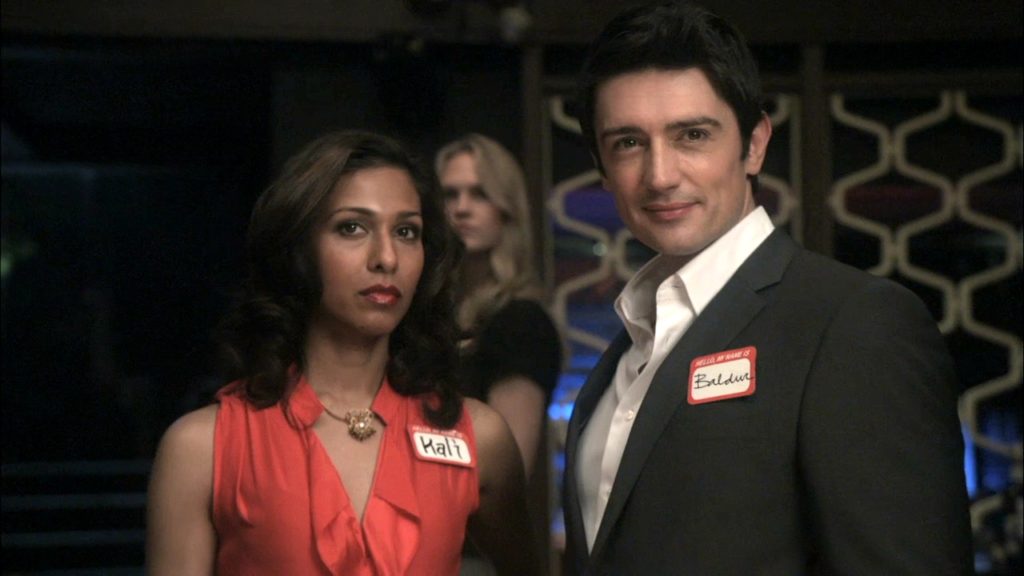
TrunkSpace: You come to the States to shoot and you’re sent to Canada!
Croasdell: (Laughter) Yeah. Actually, a lot of my jobs have been up in Canada. A lot of my work. “Reign,” “Supernatural,” “Once Upon a Time”… and another as well. I love going up to Canada. I love it.
But yeah, the fans are phenomenal. Just the other night there was a book launch for a “Supernatural” book that a lot of the actors had contributed to. I was there and people were coming up to me like, “Hey, you’re Baldur!” I was like, “How can you even remember that? That was like seven years ago!” (Laughter)
It’s a phenomenon that I was totally unused to, being an English actor. There’s not a fanbase in the same way over there. People play it a bit cool in the UK sometimes. Here, if people like a show, they really like a show and they’re not afraid to say it, which is wonderful for the actors.
The series finale of “Reign” airs tonight on The CW.


